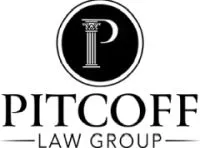Is your business partner acting in bad faith?
When trust is betrayed by a partner's deceitful actions, safeguarding your business becomes imperative. At Pitcoff Law Group, we recognize the gravity of such situations and are dedicated to aiding you in navigating the complexities of partner theft. Below, we outline the 5 crucial clauses that can help ensure accountability and protect your business interests:
Part 1: Breach of Fiduciary Duties: Partners in a business are bound by fiduciary duties, requiring utmost loyalty, good faith, and care. Acts such as stealing corporate opportunities, assets, or engaging in competition with the business constitute breaches of these duties.
Part 2: Usurpation of Corporate Opportunities: This legal principle prohibits officers or directors from exploiting business opportunities for personal gain without authorization. If a partner competes with the company to its detriment, a claim for usurpation of corporate opportunities may arise.
Part 3: Unjust Enrichment: In cases of bad faith actions benefiting one party to the detriment of another, a claim for unjust enrichment may be warranted. It imposes an obligation on the enriched party to prevent injustice, requiring proof of enrichment at the expense of another.
Part 4: Breach of Contract: Operating agreements or shareholder agreements often govern disputes between partners. Breach of contract claims arise from violations of these agreements, with considerations such as arbitration clauses and legal fee provisions playing pivotal roles.
Part 5: Fraud: Fraud claims are common in partnership disputes, alleging false representations made by a bad faith partner. Elements such as material fact misrepresentation, reliance, knowledge of falsehood, damages, and intent are scrutinized in such claims.
The content of this article is intended to provide a general guide to the subject matter. Specialist advice should be sought about your specific circumstances.

